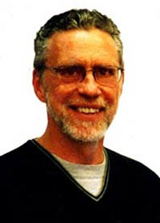
Professor Robert Forrant
RESD
University of Massachusetts Lowell
O'Leary Library, 500A
61 Wilder Street
Lowell, MA 01854
978-934-2904

Professor Robert Forrant
RESD
University of Massachusetts Lowell
O'Leary Library, 500A
61 Wilder Street
Lowell, MA 01854
978-934-2904
Fall Office Hours:
Tuesday and Thursday, 9:30-10:45,
12:30-1:30; Thursday 3:00-5:45PM
And always by appointment.
|
Robert Forrant received his
Ph.D. in history from the University of Massachusetts Amherst in
1994. He is a professor in the Department of Regional Economic and
Social Development at the University of Massachusetts Lowell, and
has been a consultant to the United Nations Industrial Development
Organization and the International Labour Organization.
He has engaged in research and program evaluation activities for the Organization for Economic Cooperation and Development, the United Nations International Development Organization, the U.S. Department of Housing and Urban Development, the Massachusetts Department of Education, the Massachusetts Manufacturing Partnership, the International Metalworkers Federation, the Organization for Economic Cooperation and Development, the International Association of Machinists and Aerospace Workers. Professor Forrant is the editor of three volumes on sustainable regional development, the author of numerous published articles on industrial development and decline in the Connecticut River Valley and New England, and New England, and a forthcoming book on the history of metalworking in the Connecticut River Valley with a particular focus on Springfield, Massachusetts, tentatively titled Metal Fatigue. He serves as a
regional economy analyst for the journal Massachusetts Benchmarks
and is on the editorial boards of the academic journals New
Solutions and Labor History. Professor Forrant serves as
a faculty historian to the “Communities of
Scholars—Communities as Classrooms” Teaching American History
project directed by the Tsongas Industrial History Center and funded
by the United States Department of Education working with Lowell and
Worcester, Massachusetts social studies teachers. At the university
he teaches courses in U.S. history
(US History
Since 1877 43.112), labor studies
(Work
and Society 43.380),
(Work and
Technology 57.503) and global development
(Development Principals for Developing Countries 57.537)
and supervises numerous Master’s Degree thesis students and serves
on several Work Environment Department doctoral dissertation
committees. He is the recipient of the University of Massachusetts
President’s Award for Public Service, 1998 and the UMass Lowell
Department of Regional Economic and Social Development Teaching
Award, 2007, 2003 and 1998. Before completing his graduate education, he
worked for many years as a machinist and union business agent at the
now closed American Bosch plant in Springfield, Massachusetts. |
|
|
| Spring 2008
Courses:
|
| Current
Research Massachusetts Benchmarks Initiative regional economic analysis for Northeast Massachusetts, ongoing. Key economic indicators research project including employment, unemployment, wage and salary information, industry trends and international trade as part of system-wide faculty research team coordinated through the University President’s office. University of Massachusetts President’s Office Creative Economy Initiative Lowell National Historical Park, three-year research project titled "An Ethnographic Study of Lowell, MA: Immigration, Globalization and Enterprise in the ‘All-American City’" |
|
|
Current
Grants
|
Recent
Publications
|
|
|
Past Research
|
| Curriculum Vitae |